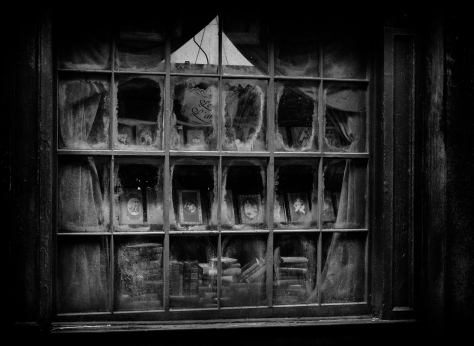Sunday was blessedly quiet. I read a little, wrote a little, caught up with correspondence, walked a little, slept a little, and at the end of the day we watched the last episode of The Secret Agent.
It is a good number of years since I read it so I had forgotten a great deal. The TV adaptation was very claustrophobic but memory of the book is less so. Maybe it is because the TV version simplified a great deal while changing the narrative order of the book. There was no real argument about the causes of the discontent or about its ideology. The anarchists wanted to blow things up, the Russians wanted things blown up. Somebody had to blow things up and of course it was the innocents who died.
Well, I suppose that is an accurate enough summing-up of what happens in life but for more complicated reasons. Good text for the times though as plenty of others have pointed out and probably one of the reasons for producing a new version now.
Not quite convinced by Toby Jones's Verloc. The face seemed stuck in a permanent grimace of malevolent discomfort. Tough on Vicky McClure's Winnie too, a passive sweetness working in a porn shop, who harbours no suspicion at all of Verloc and his sudden fatherliness.
*
Talking of porn a friend and near neighbour lent me his daughter's deservedly top-graded graduation essay on Rochester's Sodom and Gomorrah. It is essentially a feminist reading complicated by the notion of a moral pornography that subverts conventional power relations. Lovely sophisticated work.
It is worth remembering of course that Sodom and Gomorrah does not exist in a theoretical vacuum but that, like all Rochester's poetry, is a historical work produced in a certain political, moral and psychological climate, by a man whose best known poem is titled, 'Upon Nothing', a scathing dismissal of humankind as a whole.
And that is precisely what is thrilling about Rochester. It is not so much the forthright language or the scandalous subject but his iron will to form, by means of which he exposes rather than revels in the state of human desire, appetite and capacity. His creatures are much the same as Lear's 'poor, bare, forked' animals. They are unaccommodated. They inhabit a nothing, a vacancy. They do not have the shelter of either reason or morality. They are appetites lost in outer space.
Rochester, of course writes from a male perspective and since the pathology of male desire has been widely discussed from various - often critical - points of view, the essay can handle that with great confidence and aplomb. That is not quite the case when it discusses the story of Lot's daughters, where terms such as 'peculiar', 'deeply uncomfortable' and 'incredible' come into play.
The issue of female desire, appetite, and capacity is still rarely treated in literature and comes as a shock. There are exceptions, of course, but women might do well to write it as honestly and fiercely as they can, as fiercely perhaps as Rochester. And write it not as exception but as norm, as Rochester did. That, I suspect, would be genuinely subversive.



1 comment:
I didn't make it past the first episode of The Secret Agent. But maybe I'd enjoy the book more?
Post a Comment